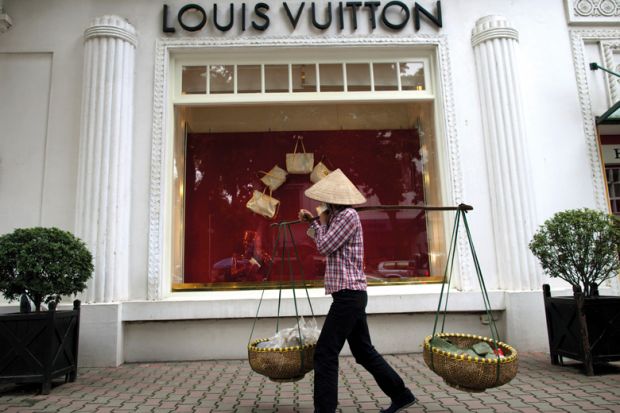Vietnamese students reap little net benefit from skills acquired at Western universities because an economic “mismatch” hinders them from using their newfound abilities to enrich themselves or meet national needs, according to a new book.
Research by Sydney educational sociologist Lien Pham suggests that although overseas-acquired qualifications boost earnings in Vietnam, the payoff does not cover the investment. And the country is also short-changed, for cultural and structural reasons.
Dr Pham said most returning graduates sought prestigious jobs in multinational corporations, which tended to value overseas-trained people’s English fluency and problem-solving abilities. In the more hierarchical culture of Vietnamese-owned companies, employees who volunteered ideas were “not appreciated”.
But Vietnamese branches of multinationals tended to specialise in manufacturing and distribution, not research and development, and had little need for technical skills. Consequently, overseas-trained graduates gravitated to managerial positions where they could use “soft” skills such as communication, but their engineering and scientific expertise was redundant.
The research, based on extensive surveys and interviews, has been summarised in Dr Pham’s book, International Graduates Returning to Vietnam. Most interviewees felt that they were making little contribution to meeting Vietnam’s needs in areas such as health, poverty, human rights and public administration.
And while returnees who obtained management jobs with multinationals could command salaries of up to $1,000 (£790) a month – compared with typical Vietnamese earnings of about half as much – the extra pay was a paltry return on master’s degrees that could cost $150,000 in tuition fees alone.
Dr Pham, who lectures in the Graduate Research School at the University of Technology Sydney, acknowledged that her findings were controversial. “Most universities offering international education put it out there that [students will] find better jobs and higher income when they finish. But there’s some question about that.”
Foreign study was nevertheless an attractive proposition, she said, partly because of the migration possibilities and partly because of “post-colonial” reasons. “The symbolic image of quality education is that it lies in the West. The university system in Vietnam cannot compete with that,” she explained.
Postgraduates fared reasonably well when they returned home, Dr Pham said. Many had attracted government scholarships and already had the personal networks needed to find employment in a country such as Vietnam. But most students were undergraduates supported by their parents, and they had never worked in Vietnam and had “no point of leverage” to get jobs.
She said universities could best help by arranging internships in Vietnam, rather than the host country, and with Vietnamese-owned firms rather than multinationals. This would enable students to make connections and harness their technical skills. Most importantly it would expose them to Vietnamese work culture “so they’re not so shocked when they come back and get a job”.
Although organising offshore work experiences might sound a tough task for a university, some Sydney institutions already offered this service, Dr Pham said. “It requires a curriculum change and good links, but it can be done,” she said.
Register to continue
Why register?
- Registration is free and only takes a moment
- Once registered, you can read 3 articles a month
- Sign up for our newsletter
Subscribe
Or subscribe for unlimited access to:
- Unlimited access to news, views, insights & reviews
- Digital editions
- Digital access to THE’s university and college rankings analysis
Already registered or a current subscriber? Login








